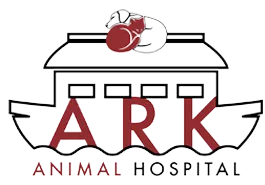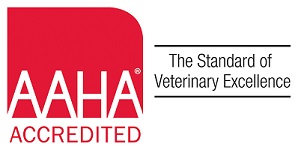All dogs and cats at some point in their life will need to have their teeth scaled and polished. Even though most people brush their teeth 2-3 times a day the American Dental Association recommends a dental visit every 6 months. On average most pets will need to have their teeth cleaned and polished by a veterinarian every 1-3 years.
A veterinary dental cleaning involves anesthesia to keep your pet safe and comfortable during the procedure. We scale the teeth above and below the gum line to remove plaque and bacteria. Scaling involves scraping the surface of the tooth with an instrument. Scaling below the gum line is the most important aspect because that is where periodontal disease is most active. No pet is going to let you scale under their gum line without anesthesia. There is also a complete oral evaluation to examine your pet’s mouth more carefully. It is very difficult to get a good look at what is inside the entire mouth while our pets are awake and resisting having their mouth opened.
For more information on why not to have an anesthesia fee dental cleaning see the link below from the American Veterinary Dental College.
http://avdc.org/AFD/reasons-not-to-choose-anethesia-free-pet-dentals/
Dental cleaning however are only half the battle. After the teeth are cleaned and your pets eat their next meal the plaque cycle starts again. Daily brushing is best. We understand not many people have pet’s patient enough to sit for brushing or enough time in the day, but if you can brush your pet’s teeth more than 3 times a week you will really be helping to slow plaque formation. Finger brushes or regular brushes are fine, but you want to make sure you are using a veterinary tooth paste. People toothpaste will make pets sick. There are also rinses that are designed to help prevent plaque and tarter from attaching to the teeth. There are dental foods designed to grind against the teeth more, and dental treats that may help reduce plaque and tarter formation. Oravet chews are also a great product given as a treat to help prevent plaque formation. Some pets will require more than one therapy.
Samson, my dog, has his teeth brushed daily with CET toothpaste, eats a dental diet, and gets an ovavet chew. He also chews on dentahex treats throughout the day. Scarlet, our clinic cat, on the other hand resists brushing. She was on a dental diet but had diarrhea problems. We love her and monitor her teeth so that she can have a sedated dental scaling and polishing when she has a decent amount of plaque, but prior to the onset of gingivitis.




